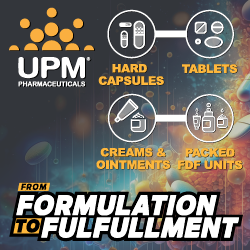ProQR’s Drug Candidate Receives Orphan Drug Designation
ProQR Therapeutics N.V. recently announced its investigational drug QRX-411 has received orphan drug designation (ODD) from the US FDA and EMA for the treatment of retinitis pigmentosa, including Usher syndrome, the subtype targeted by QRX-411. Usher syndrome is the leading cause of combined deafness and blindness due to genetic defects in the Usher gene.
ODD in the US and European Union provides a special status for investigational drugs being developed for rare diseases. The ODD programs offer development program tax benefits and a waiver of the NDA application user fee, as well as market exclusivity for up to 7 years in the US, and 10 years in the European Union following market approval.
“We are pleased with the progress we have made to date with our novel RNA- based therapeutic ophthalmology pipeline for patients suffering from genetic eye diseases. Securing orphan drug designations from the FDA and EMA for QRX-411 is a milestone for the program and highlights the importance of addressing the unmet need of this debilitating disease,” said Daniel A. de Boer, CEO of ProQR. “The severe genetic retinal diseases we are targeting do not have any available therapies, especially disease-modifying therapies focused on restoring vision or impeding progression of the disease. We believe our novel RNA oligonucleotide approach has the potential to make a meaningful impact in the lives of Usher syndrome patients and others with rare genetic eye diseases.”
“At ProQR, we have a unique opportunity to combine the flexibility of our oligonucleotide drug discovery platform with accelerated drug development strategies for rare diseases,” added Chief Development Strategy Officer, David M. Rodman. “Orphan drug designation is an important step in rapidly bringing transformational precision medicines to patients with Usher syndrome and many other genetic causes of blindness in children and adults.”
ProQR’s growing ophthalmology portfolio includes:
-QR-110 for Leber’s congenital amaurosis Type 10 (LCA 10) due to the p.Cys998X mutation, which received IND and CTA clearance and is in clinical development (PQ-110-001 Phase 1/2 safety and efficacy study). QR-110 was also granted Fast Track designation by the FDA and Orphan Drug designation by the FDA and EMA.
-QRX-411 for Usher syndrome type II due to the PE-40 mutation in the USH2A gene, for which a clinical candidate has been selected and is ready for IND enabling development studies.
-QRX-421 for Usher syndrome type II due to Exon 13 mutations in the USH2A gene, for which a clinical candidate has been selected and is ready for IND enabling development studies.
-QRX-1011 for Stargardt’s disease due to c.5461-10T>C mutations in the ABCA4 gene, which is in optimization phase.
-QRX-504 for Fuchs endothelial corneal dystrophy (FECD), for which a clinical candidate has been selected and is ready for IND enabling development studies.
QRX-411 is a first-in-class RNA-based oligonucleotide designed to address the underlying cause of Usher syndrome due to the c.7595-2144A>G mutation in the USH2A gene. The mutation is a substitution of one nucleotide in the pre-mRNA that leads to aberrant splicing of the mRNA and non-functional or absence of USH2A protein. QRX-411 is designed to restore wild-type USH2A mRNA leading to the production of wild-type USH2A protein by binding the mutated pre-mRNA causing normal splicing of the pre-mRNA.
ProQR Therapeutics is dedicated to changing lives through the creation of transformative RNA medicines for the treatment of severe genetic rare diseases such as cystic fibrosis, Leber’s congenital amaurosis Type 10 and dystrophic epidermolysis bullosa. Based on our unique proprietary RNA repair platform technologies we are growing our pipeline with patients and loved ones in mind. For more information, visit www.proqr.com.
Total Page Views: 2001












